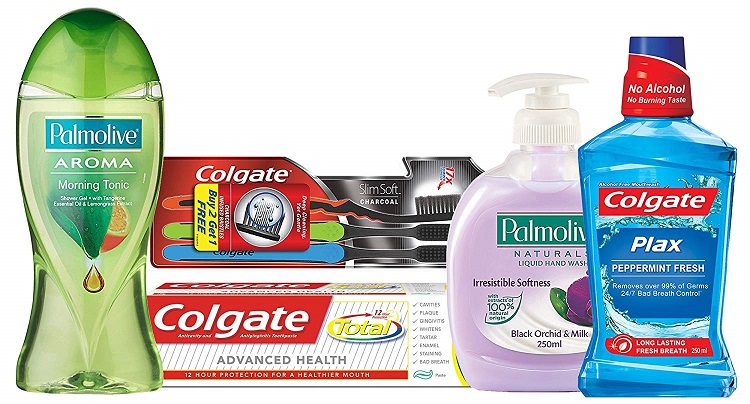
The Colgate-Palmolive Company, one of the largest companies in the world, offers many well-known brands in oral care, personal care, home care, and pet nutrition. Ranked #182 on the 2017 Fortune 500 list, its products are sold in more than 200 countries, and the company has approximately 38,000 employees worldwide. The Competitive analysis of Colgate-Palmolive gives a detailed picture of the various steps devised by the Company to leverage digital technology to sustain growth.
It has launched Colgate Smart Electronic Toothbrush E1, with built-in sensors that detect its position in the mouth in 16 different areas, collecting real-time data which is transferred via Bluetooth to the Apple smartphone. The Artificial Intelligence capabilities then analyse information about a person’s dental hygiene and make recommendations on how to improve oral care. Coupled with a charging stand it includes a few games as well.
The Dare to Love toothpaste that was launched online in China took the Colgate brand to a younger female purchaser. The product was created in a very short period of time. It was their largest and fastest-selling multipack on the 11/11 Singles’ Day in China and the single biggest growth driver in their portfolio for online retailer.
Thirty percent of the total amount of money spend on advertising, focuses on digital marketing in general. There’s an increasing focus on digital marketing in general. The Smile Show is a series of videos promoting Colgate. The brand collaborated with You Tubers- Andrea Brooks and Blair Fowler and got 24M views. Promotions took place on desktop and mobile devices.
The consumer engagement centers in the US and China allow them to track what the consumers are engaging in 24/7 online and insert themselves into that conversation with the brand. Colgate tries to keep close to its strategic IT partners and maintain consistent systems and processes across regions. In 2015, the company decided to modernize its approach towards collaboration. Digital supply chains use new technologies like the Internet, advanced robotics, analytics, and big data that transform the supply chains into more efficient machines. Colgate-Palmolive’s focus has been on improving analytics and automation in the supply chain.
The SAP, the fourth largest enterprise software company in the world works behind the scenes to improve supply-chain capabilities and resource optimization for Colgate-Palmolive. This consumer products Company created a cross-functional team of representatives from infrastructure and operations, site management, networking, and security. After interviewing it’s employees and analyzing existing collaboration workflows, the team came up with a Top 10 list of end-user needs, including the ability to store files in a single location, enable face-to-face video meetings, and reduce the time spent logging into different tools. It saves time and costs previously spent on collaboration while increasing employee engagement with customers, friends and partners.
In order to attract consumers, Colgate also adopted the strategy of location based targeting, which allowed them to respond more quickly to the local market need. Maha Kumbh Mela, a spiritual gathering of Hindu pilgrims was used as a location based targeting tool to reach consumers. They understood that most of Hindu pilgrims who formed their target consumers had low literacy rates. So they used voice-based communications through a mobile phone to promote their products. The brand set up a virtual circle around the pilgrimage site and when pilgrims entered the circle, they were called upon by Amin Sayani – an Indian radio personality to visit the Colgate booth to receive free samples.
Colgate-Palmolive has established industrial robots in the supply chain and more recently the company has switched to collaborative robots to help workers to handle material. It has also incorporated sensors that predict failures, hand-held wireless devices to help with material flow, RFID (radio frequency identification) tags to check and restock inventory.
Most companies are committed to limiting emissions, the usage of water and natural resources. Colgate must also walk a similar path of adopting a circular model which is opposed to the linear model of “take, produce and throw”. This is discussed in the environmental macroeconomic trends in Colgate-Palmolive’s PEST analysis. Another area of focus for Colgate-Palmolive may be to implement technologies that connect the supply chain more directly to the end consumer. However the company has given back to the community various programs out of which the most successful one is the Colgate Bright Smiles program. It provides for free dental screenings and oral health education. The Company’s campaign has reached 900 million children across 80 countries. With its foray into the digital world and innovation, the Company is bound to remain competitive and scale new heights through its efficient implementation of goals.

Mar 24, 2020

Sep 24, 2022